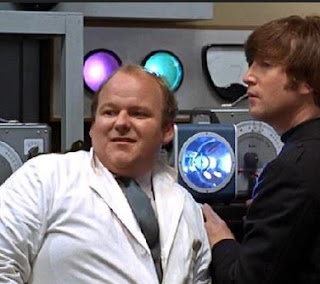Confessions of a Jobsworth
In the past few weeks, as refugees are turned away and charity shipments to the Ukraine get stalled at the borders because they don’t have customs paperwork, the term “jobsworth” has been slung around at the Home Office, Border Force and HMRC (and private contractors).
Now that things have calmed down a bit, it’s made me look back at being a “jobsworth”.
I’ve just done a bit of research and found that the term became popular in the 1970’s when Esther Rantzen used to present a “Jobsworth of the Week” award on her TV show, That’s Life.
The idea seems to be that a “jobsworth” is not just someone who rigidly applies the rules (as their contract of employment requires) but that they gleefully take the most rigid and obstructive interpretation of those rules, just to make life difficult.
A lot of the folk who shout “jobsworth” do it when they’re wound up. Give them five minutes to calm down, and they’d admit it was unreasonable. But there are others who seem to have a Donald Trump-like view of the world. The rules are there, but I’m so special that you should bend or ignore them, just for me.
That goes hand-in-hand with the expectation that if you bend the rules, you should do it in their favour. Accountants were very fond of trotting out the phrase that HMRC should “exercise their discretion” in their client’s case. But sometimes my discretion was that their client was a crook, and even if he wasn’t going to jail, he certainly wasn’t going to pass go.
That would make me a “jobsworth” of course. Or perhaps just protecting the revenue.
On the other hand, there were times when the system clearly wasn’t working the way the procedures said it should. Or whoever wrote the procedures hadn’t foreseen a commercial blind alley the punter suddenly found himself in. At times like that, you needed to give “the system” a sharp thump, like a valve television in the days of co-channel interference.
But every time I thumped the system, I realised I was making it worse for the next HMRC officer he dealt with. Maybe next time the rules DID apply. “The other guy sorted it out. Why won’t you. What kind of jobsworth are you?”
Perhaps the term “jobsworth” should now be called “pensionsworth”. One of the factors that tipped me into taking redundancy was that it gave me a chance to get out with my pension in place. As the pandemic set in, and HMRC began to wobble, every time I cut a corner or ignored a rule to sort someone’s problem out, I began to wonder about my new layers of managers – some very new and ambitious. Would they support what I’d done? Or insist on following the rules?
As I said here, things were a bit different in Large Business. The smaller population meant there was more scope to take a collaborative approach resolving the trader’s problems. In regional business services or customer services, the bigger population meant there was only time for a shotgun (as in point-and-fire approach). Apply the rules first, ask questions afterwards. (in more recent years this was turned into a philosophy “once-and-done”, parcelled up as if it was doing the punters a favour).
When it comes down to it, a lot of your approach to the rules will depend on your boss. I remember one Higher Officer who was a process “high priest”. He’d done a lot of good out of taking part in projects developing the system and warned everyone to watch out for Assistant Officer’s trying to “subvert the system”. With a deserved reputation as a backstabber, you would need a cast-iron justification for diverging from the rules. And even then, it probably wouldn’t do you much good.
On the other hand, another manager – obviously suffering from severe role conflict – would criticise whatever you did. If you applied the rules, you’d were told you should take a more “customer-centric” approach and if you bent the rules to help out a punter, you’d be reminded that procedures had been put there for a reason and the customer could always appeal if they weren’t satisfied. In some ways, that manager was easier to deal with. You knew whatever you did would be “wrong”, so you may as well do what you thought was right.
Thankfully they were the exceptions – most managers were good and concerned with get the job done. As one Higher Officer said to me during our pre-redundancy chat, “I’m glad I never said it’s more than my job’s worth, because it turns out our job wasn’t worth very much at all.”




